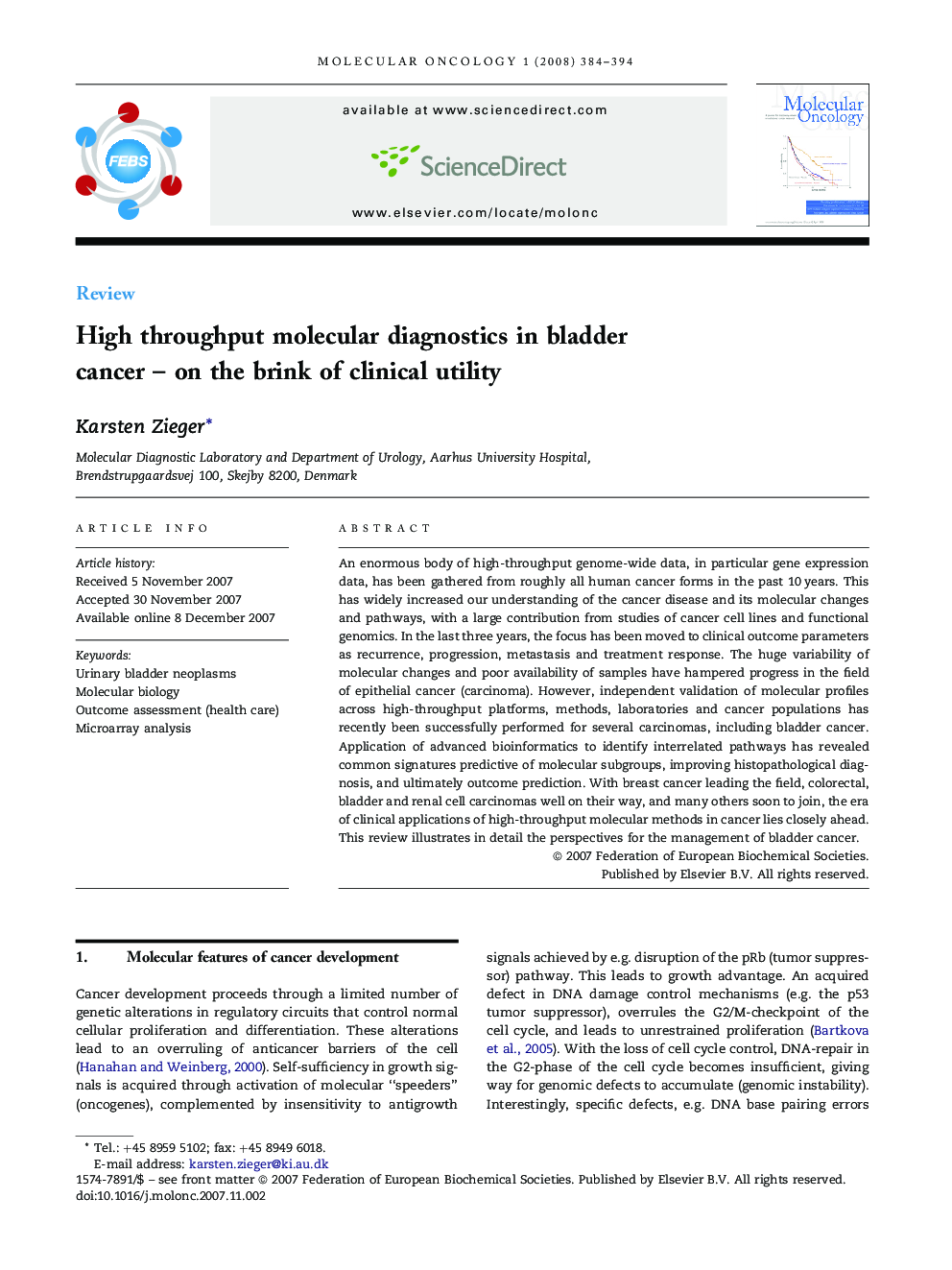| Article ID | Journal | Published Year | Pages | File Type |
|---|---|---|---|---|
| 2146085 | Molecular Oncology | 2008 | 11 Pages |
An enormous body of high-throughput genome-wide data, in particular gene expression data, has been gathered from roughly all human cancer forms in the past 10 years. This has widely increased our understanding of the cancer disease and its molecular changes and pathways, with a large contribution from studies of cancer cell lines and functional genomics. In the last three years, the focus has been moved to clinical outcome parameters as recurrence, progression, metastasis and treatment response. The huge variability of molecular changes and poor availability of samples have hampered progress in the field of epithelial cancer (carcinoma). However, independent validation of molecular profiles across high-throughput platforms, methods, laboratories and cancer populations has recently been successfully performed for several carcinomas, including bladder cancer. Application of advanced bioinformatics to identify interrelated pathways has revealed common signatures predictive of molecular subgroups, improving histopathological diagnosis, and ultimately outcome prediction. With breast cancer leading the field, colorectal, bladder and renal cell carcinomas well on their way, and many others soon to join, the era of clinical applications of high-throughput molecular methods in cancer lies closely ahead. This review illustrates in detail the perspectives for the management of bladder cancer.
